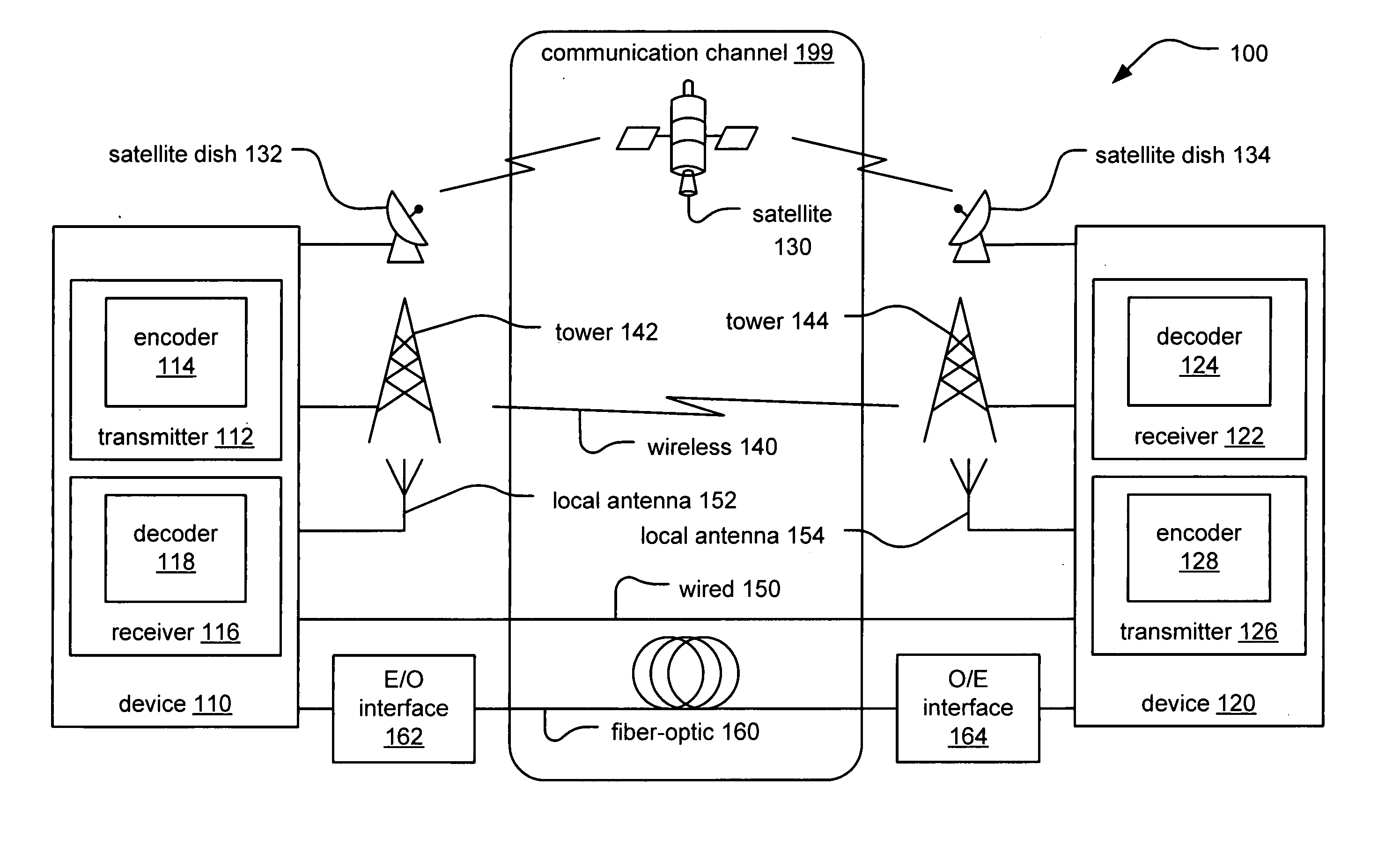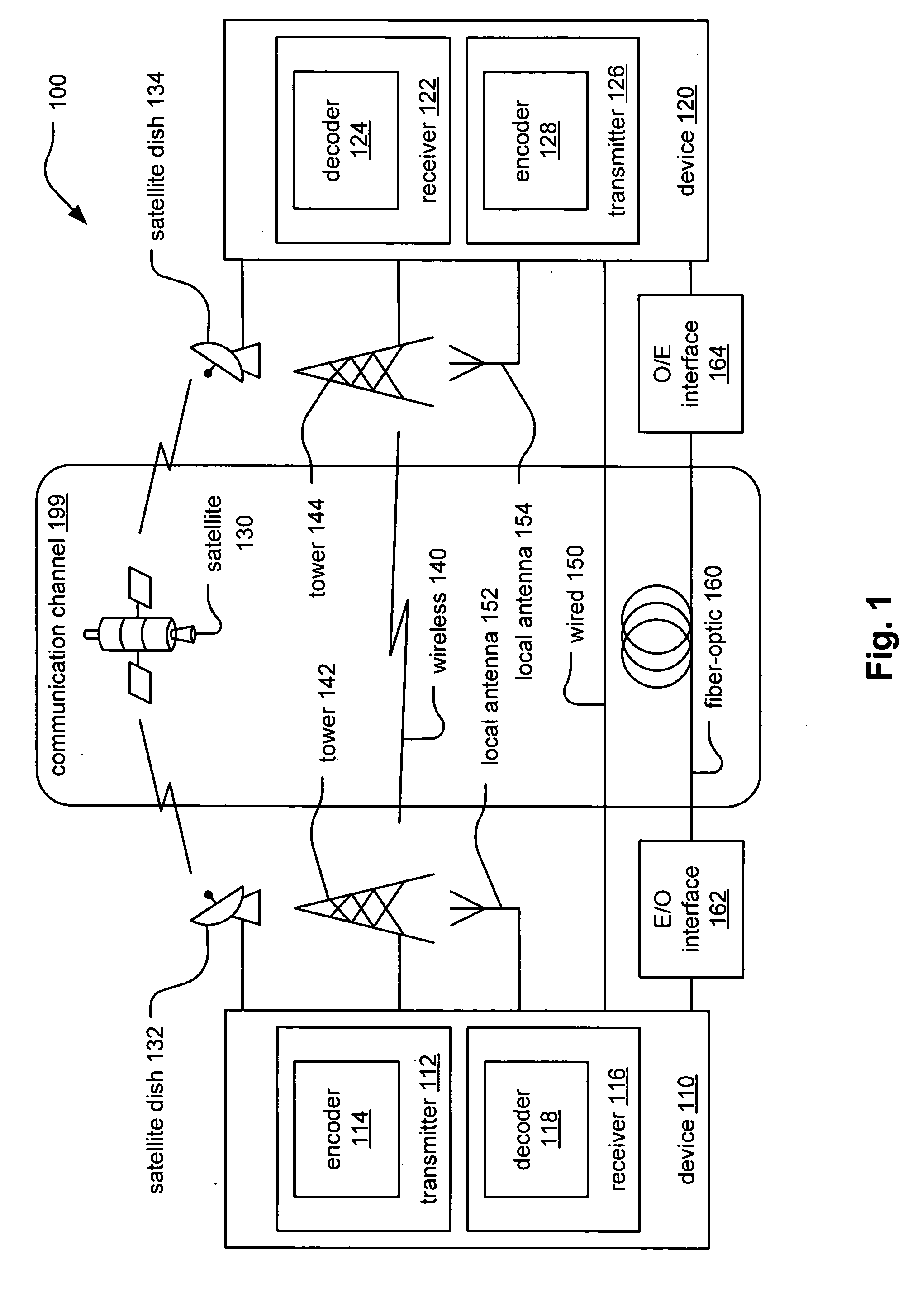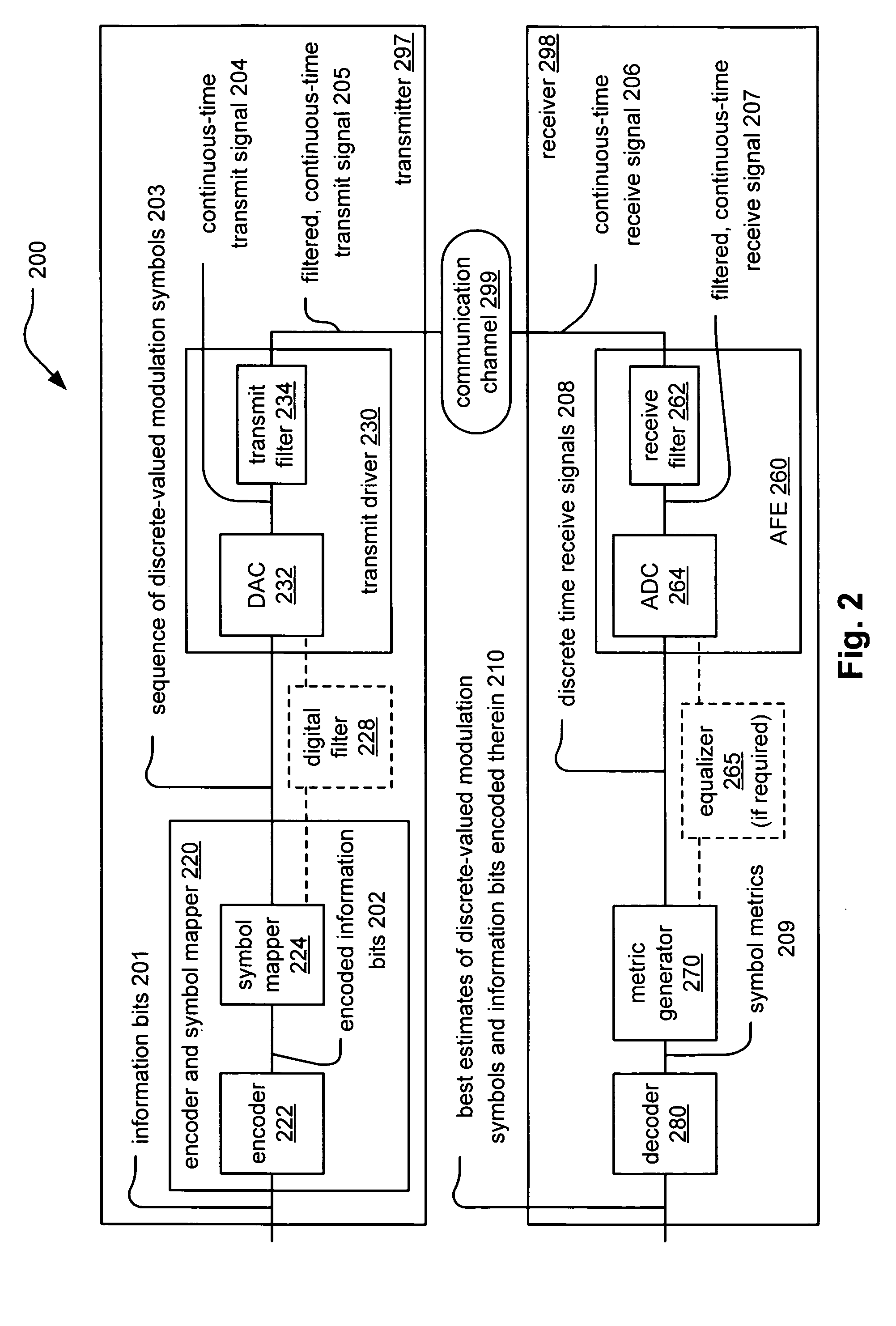IPHD (iterative parallel hybrid decoding) of various MLC (multi-level code) signals
a technology of multi-level code and signal, applied in the field of communication systems, can solve problems such as loss of precision, difficulty in implementing calculations, and implementation of calculations necessary, and achieve the effect of reducing the number of errors, and improving the accuracy
- Summary
- Abstract
- Description
- Claims
- Application Information
AI Technical Summary
Benefits of technology
Problems solved by technology
Method used
Image
Examples
Embodiment Construction
[0087] Initially, some examples of types of communication systems are presented in which various aspects of the invention may be found. Subsequently, a brief presentation to LDPC (Low Density Parity Check) code is provided. Thereafter, various alternatives of LDPC decoding are presented that may be performed in accordance with certain aspects of the invention. In addition, the “DESCRIPTION OF RELATED ART” section provided above may be used to provide some description of prior art types of MLC signals as well as some prior art means by which those prior art types of signals may be generated and decoded. After that, starting in FIG. 12, greater detail is provided by which MLC LDPC (Multi-Level Code Low Density Parity Check) coded modulation signals mapped using a plurality of mappings may be performed. This includes various LDPC code type architectures as well as generating the mapping of some possible constellation shapes to achieve the improved performance over prior art encoding sc...
PUM
 Login to View More
Login to View More Abstract
Description
Claims
Application Information
 Login to View More
Login to View More - R&D
- Intellectual Property
- Life Sciences
- Materials
- Tech Scout
- Unparalleled Data Quality
- Higher Quality Content
- 60% Fewer Hallucinations
Browse by: Latest US Patents, China's latest patents, Technical Efficacy Thesaurus, Application Domain, Technology Topic, Popular Technical Reports.
© 2025 PatSnap. All rights reserved.Legal|Privacy policy|Modern Slavery Act Transparency Statement|Sitemap|About US| Contact US: help@patsnap.com



